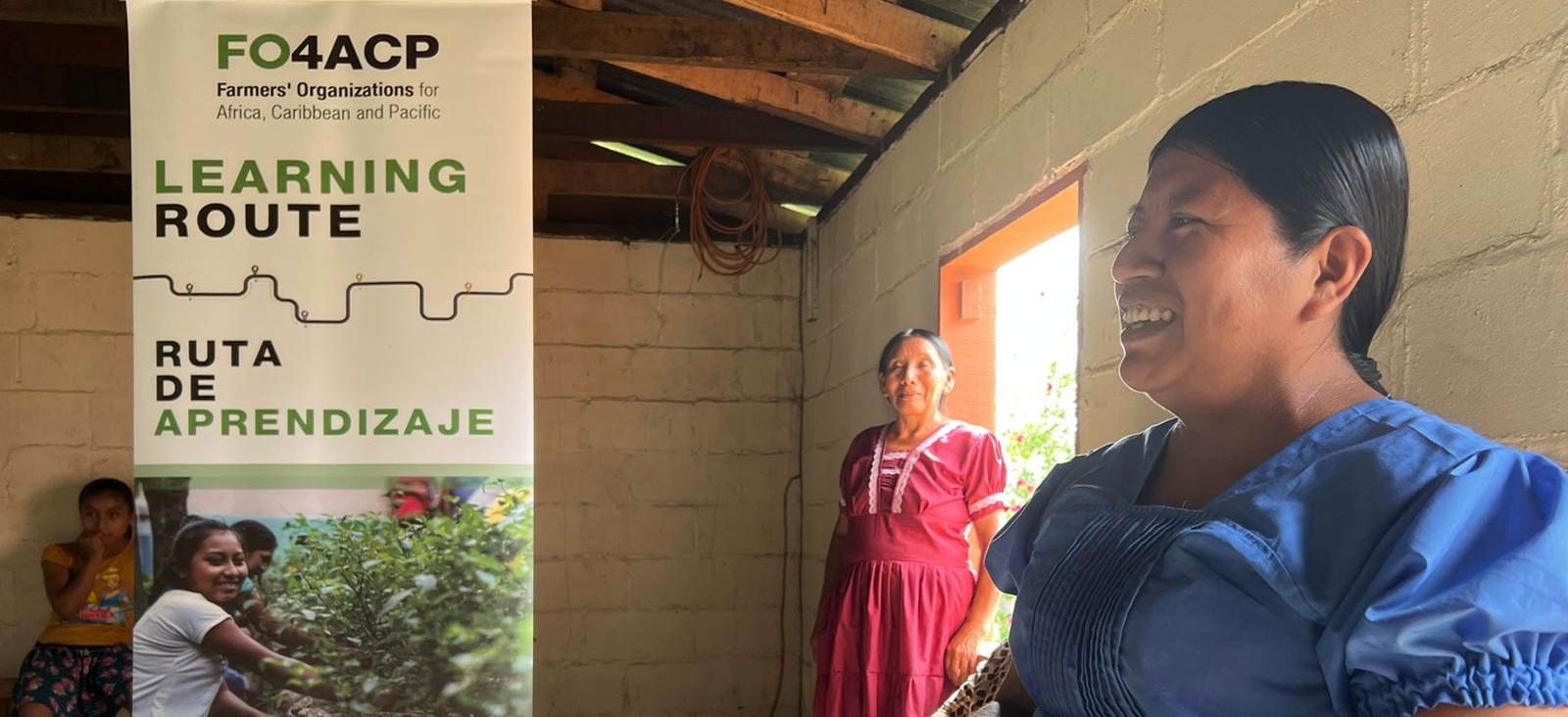Family farmer organizations in Belize strengthened their associative and entrepreneurial capacities during the FO4ACP Learning Route
From November 21 to 26, rural leaders exchanged good practices and innovations that they can apply to their contexts and to the needs of their organizations

Belizean women farmers during the learning route
©PROCASUR
Belmopan - Continuing the path towards strengthening the associative and entrepreneurial capacities of small producers' organizations in Belize, FAO, together with Procasur, fostered dialogue and policy articulation through the development of the Learning Route under the theme "Moving up the value chain! Moving the business and associative capacities of small rural producers' organizations.
This Learning Route featured 4 case studies, outstanding experiences that participants visited during the week; Cooperativa de Agricultores de la Laguna del Valle de la Paz: incorporation of new agricultural technologies and social services for its members; Sabal Food Products: diversification in the supply of products associated with a raw material; Corridgeree Belize Farm: research for the improvement of production and strategic planning in the business; Hibiscus Mayan Arts and Crafts Women Cooperative: organization with a strong gender focus through female leadership and the promotion of Mayan cultural heritage.
12 local farmers’ organizations participated in this activity and also representatives from FAO, PROCASUR and the Ministry of Agriculture, Food Security and Entrepreneurship of Belize.
Dr. Crispim Moreira, FAO’s Representative for Belize, noted that FAO's priority in this project is to promote agro-industrialization, especially in the poorest and most backward territories, with a priority focus on youth, women and farming communities.
"The FO4ACP project enables the development of tools, technologies, methodologies and helps to amplify technical assistance so that communities and organizations can process and promote local territorial development, improving family income," adds Moreira.
Rozan Mesh, an 18-year-old leader of the organization Grupo de Campesinos de Sayab, says that it has been eye-opening for her to learn about the experiences of other organizations: "by visiting different areas, different cooperatives every day, I have been able to realize what aspects we need to improve in the management of our cooperative".
Listening to farmers
Regarding the importance of strengthening the organizational fabric of small family farming, Mr. Abán said that "if we listen to the cooperatives, we can understand where we need to go with national policies (...) governments can only act if dialogue is generated through associativity".
On this same subject, Mr. Juan Moreno, PROCASUR’s President, adds "we have to facilitate an environment that allows these small producers to move in adequate conditions in the market (...) this requires that these associations organize themselves and share their problems in dialogue with the political authorities to see what measures governments can take to facilitate fair and sustainable competition in the market".
Among the demands and needs that have emerged during this exchange among Belize's small farmer organizations are gender inclusion and the incorporation of rural youth into the associations, the use of new technologies in production and market strategies, modernization of accounting methods, greater knowledge of the legal issues of cooperatives and organizations as service providers, among others.
Moreno points out that confidence in the quality of the human capital that exists in rural territories is fundamental for the future of agriculture and small-scale production, but that today there are many weaknesses: "There is a need for strong support for capacity building in small enterprises because there are still weaknesses that prevent them from improving their participation in value chains. Improving their associative fabric and management, structuring their businesses, diversifying markets and promoting the inclusion of women and young people are priority tasks identified by the participating leaders.
Following the exchange of experiences with the organizations and cooperatives visited, the participants will conclude this week of activities by putting into practice the knowledge acquired through the preparation of an Innovation Plan. This, in order to adopt and adapt the good practices learned, transforming them into practical and concrete actions that will allow them to improve their associative and entrepreneurial capacities.
At this stage, the FO4ACP program seeks to sow and build the foundations of a regional or subregional producers' association that will provide small farmers with spaces to represent their interests and enable them to dialogue with the government and subregional governments as a whole. "The great challenge is to build national and subregional spaces for dialogue between companies, cooperatives and associations that represent the interests of small-scale rural production in the Caribbean," concluded Moreno.
This initiative is part of the Farmers' Organizations for African, Caribbean and Pacific program (FO4ACP), which is funded by the International Fund for Agricultural Development (IFAD) and the European Union to support the Organization of African, Caribbean, and Pacific States (OACPS) . It aims to increase the incomes and improve the livelihoods, food and nutrition security, and safety of organized smallholders and family farmers in African, Caribbean, and Pacific countries by strengthening regional, national, and local farmers' organizations.
Contact
José Negrón Valera Communications specialist [email protected]
